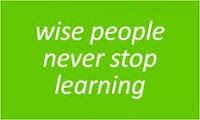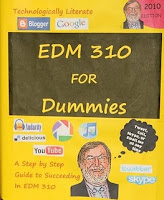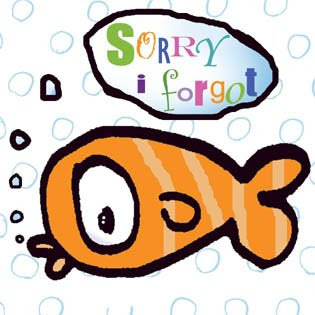Morgan Bayda is a teacher in Saskatchewan, Canada with a degree in Elementary Education. Morgan posted a video to her blog by Dan Brown. This video explains how Dan made the decision to drop out of school because school was "interfering with his education." Yes, I said that correctly. Through this video and blog post, both Dan and Morgan make very true points that I can completely agree with or relate to.
Dan makes the point that a strong education is essential to be successful in today's society. I agree. Simply memorizing facts of information is no longer good enough. Like Dan says, many years ago...people went to universities to learn information because information was valuable. Now days, the value of information is diminishing. We are in the midst of a technology revolution and it is taking full force. Since the creation of the internet, information is FREE and available with a few key strokes. I think this is wonderful, but I also think that means skills are what is needed now days...not the ability to regurgitate facts. We can get on our phones and look up a fact within a matter of seconds if needed.
Morgan and Dan both make the point that they feel "cheated" out of an education at universities. I know many times I have felt cheated. I absolutely hate sitting through two or three hour lectures nearly every day of the week, especially with professors who do not have a clue who I am. I actually had one class in nursing school that was a straight powerpoint lecture from 8:00am-3:30pm twice a week. Can you imagine how sleepy and bored we were? Facebook was my best friend during that class. Also, do you realize how scary that is for a room of nearly 120 nursing students to be struggling to stay awake, taking hour long "bathroom breaks", or sitting of Facebook that will someday being taking care of us? After those lectures, we would then go home and spend the rest of our night studying the book to memorize facts in order to pass a test. After the test, the majority of those "facts" went out the window. I still believe a more hands-on method would have been more beneficial to all. Our school systems are definitely in need of reform. Learning facts is not preparing students for the real world, or preparing them to be successful. Teachers think because they have began using a SMART board rather than PowerPoint that they have embraced this change, when truth be known...to reform our schools, it is going to take a little more than adopting a few tools such as SMART boards and e-mail. Students should be collaborating, creating, and learning skills that teaches them how to become life-long learners.
I can also relate with Dan to how he would spend hundreds of dollars on textbooks that he never opened. I have yet to have a semester where that didn't happen. It is so much easier and quicker to type what you are looking for into a search engine and have an unlimited amount of resources pop up. Also, since enrolling into EDM310, I have found Twitter is an amazing site to find resources.
I guess the one positive point I can agree with is the fact that my Education Computer class has truly embraced the changes in time. EDM310 is not a lecture based course, although Dr. Strange and his staff is available nearly any time of day for assistance. We work with a countless number of tools. We collaborate with classmates, educators, and students from all over the world. We create projects, which in my opinion is better than sitting through any lecture. It also allows us to teach ourselves, which is a skill I feel anyone has to know to be successful. I have also learned more about myself as far as my organization skills and time management. I believe I will take more away from this class than any previous class.
“Every revolution was first a thought in one man's mind” -Ralph Waldo Emerson














